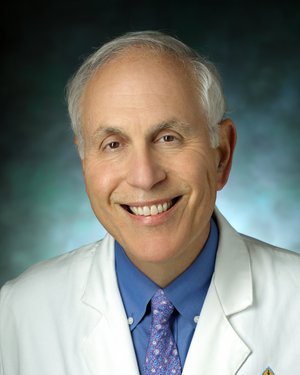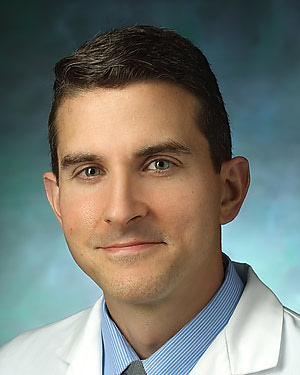Research Lab Results
-
John Schroeder Lab
The John Schroeder Lab focuses on understanding the role human basophils and mast cells play in allergic reactions, as it relates not only to their secretion of potent inflammatory mediators (e.g., histamine and leukotriene C4) but also to their production of pro-inflammatory cytokines. We have long utilized human cells rather than cell lines in order to address the parameters, signal transduction and pharmacological aspects underlying clinically relevant basophil and mast cell responses. As a result, the lab has established protocols for rapidly isolating large numbers of basophils at high purity from human blood and for growing culture-derived mast cells/basophils from human progenitor cells. A variety of assays and techniques are also in place for concurrently detecting cytokines and mediators following a wide range of stimuli. These have facilitated the in vitro testing of numerous anti-allergic drugs for inhibitory activity on basophil and mast cell activation. The lab also studies counter-regulation between the IgE and innate immune receptors on human immature dendritic cell subtypes.
-
Josef Coresh Lab
Research in the Josef Coresh Lab focuses on cardiovascular epidemiology, kidney disease and genetic epidemiology. Our team uses innovative methods to quantify disease burden and consequences in the population; studies the causes and consequences of vascular disease in the heart, kidneys and brain; and works to develop a strong scientific basis for quantifying the burden, causes and consequences of kidney disease. Working in collaboration with leading laboratories and specialists, we also aim to quantify the interplay of genes and environment in health and disease. -
John Matthew Austin Lab
Research in the John Matthew Austin Lab explores health care performance measures, with a goal of improving patient care by enabling healthcare providers to view data about their performance, track patient outcomes and comply with best care practices. Our lab is currently working to develop performance measures for the ICU part, and we are part of The Leapfrog Group, an annual survey of U.S. hospitals that compares hospital performance on national measures of safety, quality and efficiency. Our research also explores the use of scientifically sound decision-support tools for guiding improvements in healthcare delivery systems.
-
Justin Bailey Lab
We study human B cells and neutralizing antibody responses against hepatitis C virus (HCV), hepatitis B virus (HBV), SARS-CoV-2, and respiratory syncytial virus (RSV). Our overarching hypothesis is that understanding the B cell response in individuals who naturally control infections, and those who have been vaccinated, can help us to understand the basic biology behind successful immune responses, leading to design of more effective vaccines. A particular technical strength of our laboratory is high dimensional flow cytometric analysis of antigen-specific B cells, which allows us to phenotype these rare cells, and also to sequence B cell receptor (BCR) repertoires and isolate virus-neutralizing monoclonal antibodies (mAbs). -
Jonathan Golub Lab
Research in the Jonathan Golub Lab focuses primarily on the epidemiology of tuberculosis (TB), specifically in patients infected with HIV. We work with the CDC to explore potential delays in TB diagnoses as well as the risk factors that contribute to death from TB in the United States. Our research also includes ongoing studies of HIV and TB patients in Brazil and South Africa.
-
Jonathan Zenilman Lab
The Jonathan Zenilman lab conducts research related to sexually transmitted diseases (STDs). We are working to develop biological markers for sexual behavior to use in other research. The lab studies sexual risk behaviors in highly vulnerable populations and studies datasets from the Baltimore City Health Department to understand STD trends and behaviors. Additionally, we study nosocomial infections at Johns Hopkins Bayview Medical Center, with a focus on developing an antimicrobial control program. We also conduct clinical research related to the natural history and microbiology of chronic wounds in the outpatient setting.
-
James Knierim Laboratory
Research in the James Knierim Laboratory attempts to understand the flow of information through the hippocampal formation and the computations performed by the various subfields of the hippocampus and its inputs from the entorhinal cortex. To address these issues, we use multi-electrode arrays to record the extracellular action potentials from scores of well-isolated hippocampal neurons in freely moving rats. These neurons, or ""place cells,"" are selectively active when the rat occupies restricted locations in its environment and help to form a cognitive map of the environment. The animal uses this map to navigate efficiently in its environment and to learn and remember important locations. These cells are thought to play a major role in the formation of episodic (autobiographical) memories. Place cells thus constitute a tremendous opportunity to investigate the mechanisms by which the brain transforms sensory input into an internal, cognitive representation of the world and then uses this representation as the framework that organizes and stores memories of past events.
-
James Sham Lab
Research in the James Sham Lab focuses on pulmonary arteries. Studies include local calcium signaling in the pulmonary arteries and transient receptor potential (TRP) channels in pulmonary arterial smooth muscle cells. We’re also interested in calcium regulation in chronic hypoxic pulmonary hypertension.
-
Jamie Murphy Lab
The Jamie Murphy Lab conducts research on post-cesarean section pain management and post-partum hemorrhage. We also explore topics around post-partum analgesia.
-
Joanne Shay Lab
The Joanne Shay Lab primarily conducts research on pediatric pain management techniques. Our studies have explored pain management in special-needs children and patients, and we have studied non-traditional pain management methods, such as regional anesthesia and peripheral nerve blocks in children, medical acupuncture, and remote anesthesia services. We also have an ongoing interest in the business of medicine.

